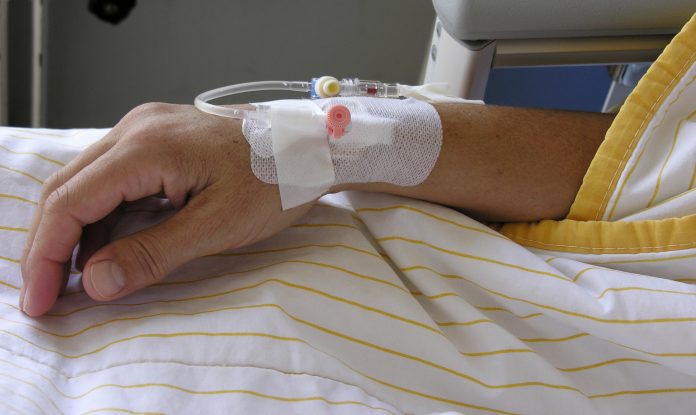Redefining efficiency based on what matters to cancer patients is placed under the spotlight here by All.Can including identifying opportunities for change
Efficiency has become something of a buzzword in healthcare recently – but the patient perspective is too often forgotten in definitions of efficiency. All.Can surveyed nearly 4,000 cancer patients from over 10 countries to ask them where inefficiencies occurred most in cancer care(1) – with the aim of building these insights into future definitions and efforts to improve efficiency in cancer care.
While most reported that their needs were sufficiently addressed during their care, they also highlighted some specific areas where improvements were needed.
Four opportunities to improve cancer care:
1. Ensure swift, accurate and appropriately delivered diagnosis
When asked to select one area of cancer care where they experienced the most inefficiency, 26% of respondents chose diagnosis – more than any other area of cancer care. Among respondents whose cancer was diagnosed outside of a screening programme, 32% said their cancer was diagnosed as something else, either once or multiple times.
2. Improve information-sharing, support and shared decision-making
Respondents expressed the need for better information and support – especially after their phase of ‘active treatment’ was over. Some 39% felt they had inadequate support to deal with ongoing symptoms and side effects, while 35% felt inadequately informed about how to recognise whether their cancer might be returning or getting worse.
“I think we do not take the aftermath into account enough. Life becomes different after [treatment] and many ‘little sores’ occur, with which one must live.” (Respondent from Belgium)
3. Make integrated multidisciplinary care a reality for all patients
Respondents asked for more focus on the emotional and psychological impact of cancer and better integration of allied health and complementary services into their care. Cancer nurse specialists were often cited as playing an essential ‘navigator’ role. While 69% of respondents said they needed psychological support during or after their cancer care, 34% of those who needed it said such support was unavailable.
“I needed someone to talk to; I was given written information.” (Respondent from France)
4. Address the financial implications of cancer
Respondents frequently spoke of the financial impact of having cancer – not just in terms of having to pay for components of their care themselves, but also the cost of travelling to appointments, childcare or household help, lost income and difficulties in getting insurance, mortgages or loans as a result of their cancer diagnosis. Over a quarter of respondents (26%) reported that they had suffered financially due to loss of employment related to their cancer.
“I was not really given any info about how long to recover from chemo or returning to work. I had to devise my own return-to-work plan.” (Respondent from Canada)
Why these findings matter
The findings from this survey are consistent with other reports in the literature. (2-5) Policymakers, healthcare professionals and all stakeholders need to listen to these perspectives and build them into efforts to improve cancer care.
All.Can member Christobel Saunders, Professor of Surgical Oncology at the University of Western Australia, said of the findings:
“It is so important that, as physicians, we listen to what patients are telling us in this survey. Each of the areas identified represents an opportunity to improve care for patients and provide truly patient-driven care.”
Acting on these findings can make a real difference to patients, their families and healthcare systems.
For example:
• For many cancers, early diagnosis can improve survival.6 By contrast, late diagnosis and misdiagnosis can lead to delays in treatment, poorer survival and higher costs of care.(7,8)
• Fulfilling patients’ needs for information is associated with improved treatment adherence(9-11) and better clinical outcomes.(11, 12) Information can help patients feel more in control of their disease, reduce anxiety and help create realistic expectations for their care.(12 13)
• Having cancer nurses may bring overall savings to healthcare systems, with one report in the United Kingdom suggesting that introducing specialist nurses into the cancer care pathway could save about 10% of cancer expenditure.(14)
• There is growing evidence that many patients face a ‘cascade of financial burden’ due to cancer: for example, an Australian study found that cancer patients may spend up to 15% of their lifetime income on their disease.(15) Social costs – namely lost productivity and caregiver time – represent 60% of the total cost of cancer.(16) Creating protective health and social policies that support those patients who can return to work and protect them from financial insecurity is therefore crucial.
About the survey:
The All.Can patient survey was conducted in 2018 by Quality Health, with close input from All.Can members. A total of 3,981 people from over 10 countries responded to the survey (specifically, in Europe, North America and Australia). The survey was open to current or former patients with any type of cancer. For more information, see https://www.all-can.org/what-we-do/research/patient-survey/
References
1. All.Can. 2019. Patient insights on cancer care: opportunities for improving efficiency. Available from: https://www.all-can.org/wp-content/uploads/2019/07/AllCan_international_patient_survey_findings.pdf [Accessed 30/07/19].
2. Macmillan Cancer Support. 2013. Cured but at what cost? London: Macmillan Cancer Support.
3. Breast Cancer Network Australia. 2018. State of the Nation Report. Camberwell, Victoria: BCNA.
4. Youth Cancer Europe. 2018. White paper on the needs of young people living with cancer. Available from: https://www.youthcancereurope.org/wp-content/uploads/2018/10/YouthCancerEurope_Brussels_2018_WhitePaper-sm.pdf [Accessed 10/07/19].
5. Chadder J, Zomer S, Lockwood G, et al. 2018. Understanding the Experiences of Cancer Patients as They Transition From Treatment to Primary and Community Care: A Pan-Canadian Study of Over 13,000 Cancer Survivors. Journal of Global Oncology 4(Supplement 2).
6. Cancer Research UK. 2018. Why is early diagnosis important? [Updated 26/06/18]. Available from: https://www.cancerresearchuk.org/about-cancer/cancer-symptoms/why-is-early-diagnosis-important [Accessed 10/02/19].
7. All.Can. 2017. Towards sustainable cancer care: Reducing inefficiencies, improving outcomes. London: All.Can.
8. World Health Organization. 2018. Guide to Cancer Early Diagnosis. Geneva: WHO.
9. Husson O, Mols F, van de Poll-Franse LV. 2011. The relation between information provision and health-related quality of life, anxiety and depression among cancer survivors: a systematic review. Ann Oncol 22(4): 761-72.
10. Tokdemir G, Kav S. 2017. The Effect of Structured Education to Patients Receiving Oral Agents for Cancer Treatment on Medication Adherence and Self-efficacy. Asia Pac J Oncol Nurs 4(4): 290-98.
11. Halbach SM, Ernstmann N, Kowalski C, et al. 2016. Unmet information needs and limited health literacy in newly diagnosed breast cancer patients over the course of cancer treatment. Patient Education and Counseling 99(9): 1511-18.
12. Jefford M, Tattersall MHN. 2002. Informing and involving cancer patients in their own care. The Lancet Oncology 3(10): 629-37.
13. Treacy JT, Mayer DK. 2000. Perspectives on cancer patient education. Seminars in Oncology Nursing 16(1): 47-56.
14. All.Can. 2017. Spotlight on cancer nurses: the heart of high-quality cancer care. Available from: https://www.all-can.org/wp-content/uploads/2019/03/AllCan_spotlight_cancer_nurses.pdf [Accessed 10/07/19].
15. The Pharmacy Guild of Australia. 2017. Half of Australian cancer survivors shouldering financial stress – and it’s on the rise. [Updated 21/07/19]. Available from: https://www.guild.org.au/news-events/blog/2017/half-of-australian-cancer-survivors-shouldering-financial-stress-and-its-on-the-rise [Accessed 18/07/19].
16. Luengo-Fernandez R, Leal J, Gray A, et al. 2013. Economic burden of cancer across the European Union: a population-based cost analysis. Lancet Oncology 14(12): 1165-74.
All.Can
secretariat@all-can.org
www.all-can.org
www.twitter.com/AllCanGroup











